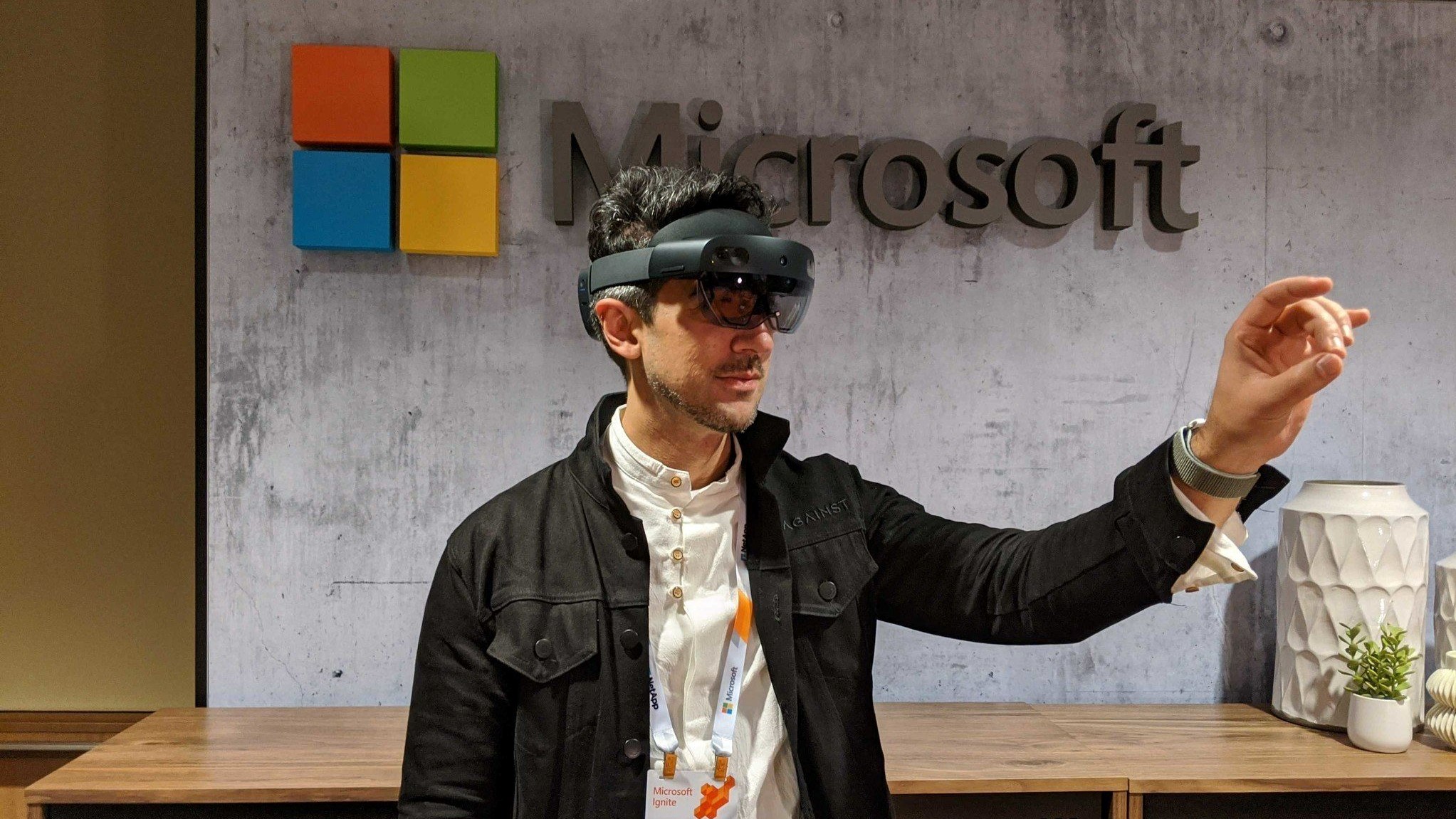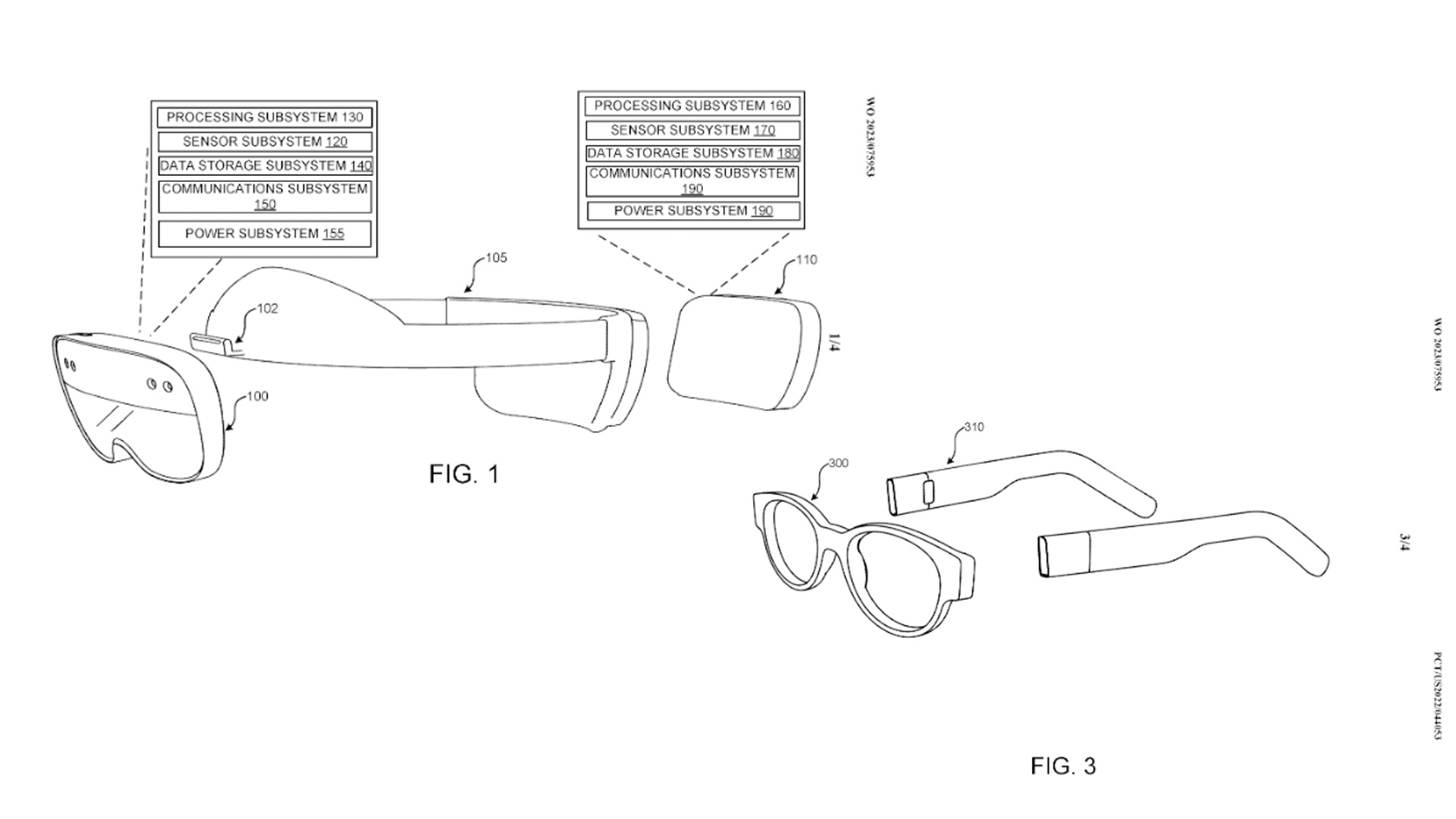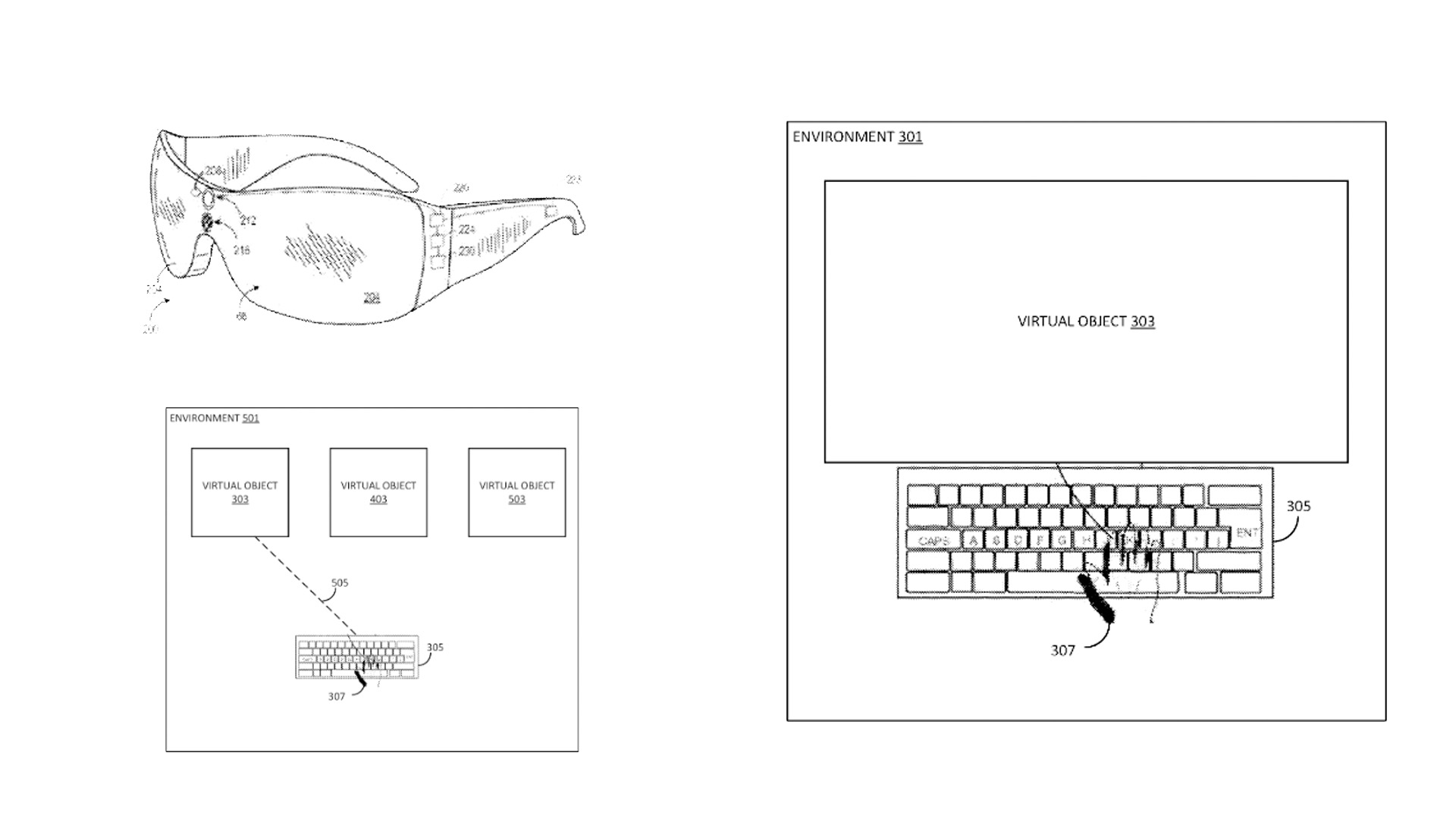HoloLens 3? Microsoft has patented a new modular HMD that could be more affordable
Patents don't necessarily mean products, though.

All the latest news, reviews, and guides for Windows and Xbox diehards.
You are now subscribed
Your newsletter sign-up was successful
What you need to know
- Microsoft's mixed reality HoloLens line has been quiet recently, with little information on whether Microsoft will continue perusing the hardware.
- Outside of a commitment to its military-grade HoloLens, there's little information on what could be next for metaversal style hardware, as Apple and Meta ramp up their efforts in the space.
- Recently, a patent appeared that looks fairly familiar to HoloLens, complete with unique modularity that makes it look a little more consumer-friendly and wearable.
- Read on for details.
A new Microsoft patent could be our first glimpse at a new HoloLens device, after years of relative quiet from the division.
HoloLens is Microsoft's mixed-reality solution, using a custom version of Windows to overlay hologrammatic apps in a real-world space. It's unique among Microsoft's competitors, most of whom use full-immersion displays that either take you out of the entire real world completely or use mounted cameras to feed the real world into the mix after the fact. It's that uncanny latency between the virtual world and the real world that often induces motion sickness, so Microsoft's novel solution of prismatic holograms is one of the few platforms that can solve that to some degree, although the firm has yet to really make HoloLens available to the masses at scale.
Right now, most HoloLens applications revolve around high-end engineering projects that benefit from manipulating 3D objects in real-time, or military applications. Microsoft has a contract with hundreds of millions with the U.S. Department of Defense for HoloLens, although the earliest iterations of its devices have reportedly been unpopular with soldiers.
With Apple and Meta continuing their own mixed reality and "metaverse" efforts, people often wonder if Microsoft is going to keep pushing into the space. The above patent drawings show off what could be a new HoloLens device in testing, with a modular form factor.
The patent description explains that one drawback of the current HoloLens model is that it cannot be specialized to specific user environments. Indeed, the current version of HoloLens 2 available to the public looks very different to the helmet-style version being tested in infantry combat scenarios. Developing a more modular headset style whose prismatic displays can be swapped into and out of different types of head strap styles could be a powerful solution.
"The modular sensor and display module may include a standard interface for attachment to various fit systems, including, for example, headband, VR headset, glasses temples, helmet, and the like. In some embodiments, a further module, such as a rear-attachment module, may be provided that can provide auxiliary compute, storage, and power resources for the modular sensor and display module."
In the above example, Microsoft envisions a version of HoloLens that can perhaps ditch the battery pack and compute units baked into the headband on the current iteration. In this form, the lenses are swapped out of the headband for a more traditional glasses frame style.
All the latest news, reviews, and guides for Windows and Xbox diehards.
Reducing the compute overhead could be a way to bring down costs and make the basic HoloLens experience more affordable for general consumers, to speculate. Late last year, Microsoft said that its next iteration of HoloLens needs to be "meaningful," following previous reports that HoloLens "3" may have been canceled entirely. Switching HoloLens to a modular design is pretty much what I'd describe as meaningful, no?
Microsoft also recently patented some virtual keyboard attachment designs specifically for HoloLens and other similar augmented reality headsets. The patent revolves around placing a virtual keyboard on a table, allowing you to type more naturally while using hologrammatic windows.
Microsoft's layoffs over the past year have heavily targeted its mixed reality and so-called "metaverse" efforts, with products like AltspaceVR completely shut down not too long after acquiring it. Microsoft claims that it's continuing to pursue the metaverse, with its Microsoft Mesh platform which combines Microsoft Teams and other 365 services in virtual mixed-reality environments. Microsoft is also working on updated versions of HoloLens for the military, to satisfy its contracts with the Department of Defense. This was after soldiers complained of motion sickness and general inoperability problems with the first iterations of the product.
Microsoft debuted its HoloLens mixed reality platform far ahead of Apple, Meta, and other competitors in the space, but has yet to really make it affordable for regular consumers, or logical for the vast majority of business use cases. People have balked at Apple's Vision Pro headset, which costs an absurd $3500 dollars, and doesn't exactly push the envelope far beyond what HoloLens currently does. There were rumors that Meta had killed off its own Quest "Pro" range as part of cost-cutting measures, but the firm behind Facebook later denied these reports.
As usual with patents, they could just be prototypes that never see the light of day. But hey, it's fun to dream, right?

Jez Corden is the Executive Editor at Windows Central, focusing primarily on all things Xbox and gaming. Jez is known for breaking exclusive news and analysis as relates to the Microsoft ecosystem — while being powered by tea. Follow on X.com/JezCorden and tune in to the XB2 Podcast, all about, you guessed it, Xbox!


